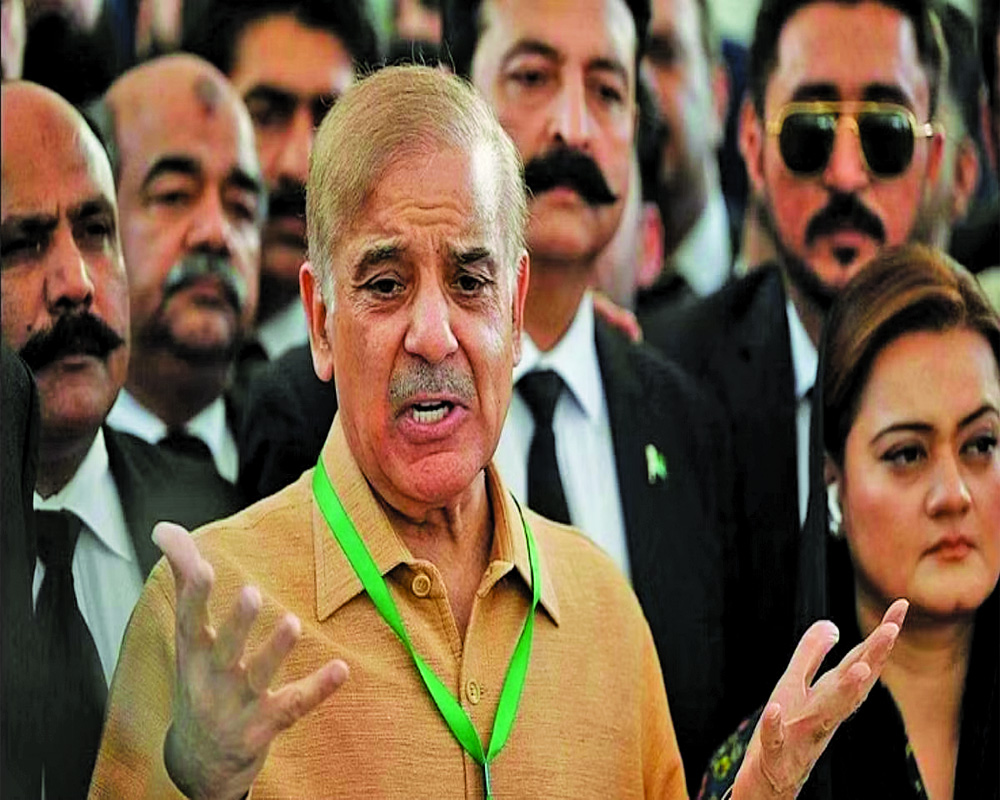Pakistan is in deep trouble, but most of its problems were invented by its own ruling elite. It is a case study in how not to run a country
The socio-economic-security crisis in Pakistan is unprecedented with the official annualized inflation soaring upwards of 35%, and the severe ‘corrective’ measures insisted on by the International Monetary Fund, yet to kick in. Estimated two million jobs have evaporated in just one year. Coming on the back of the Covid pandemic-related misery and devastation, coupled with the imploding issues of secessionism, violent terrorism, and polarising religiosity, the ‘land of the pure’ is under acute stress. Even more economic tightening, inflationary pressures, and counter-insurgency actions are guaranteed if Pakistan is to survive.
So where did it err? What explains its morass? Is it because of its unhinged politicians? Is it because of its frequent disruption to democracy by its military dictators? Is it to do with its governance choices in diplomacy and geopolitics?
While all these factors are true, however, there is one basic foundational flaw in the ‘Idea of Pakistan’ bestowed by its founding fathers that have spun completely out of control, metastasized, and institutionalized itself in everything that Pakistan does i.e., religiosity, that has emptied its coffers and brutalized its society. This sovereign instinct has necessitated selectivity and curation of historical narrative – much before the independence of Pakistan as ‘New Medinah’ (echoes of the same persist with Imran Khan’s call to Riyasat-e-Medinah), ensuring the imagined history to start with the arrival of Muhammad bin Qasim in Sindh, got fixed. The long civilizational past is not just obliterated or diminished, but outrightly denied. Even flashes of Pakistan’s Qaid-e-Azam, Muhammad Ali Jinnah’s invocation of secularity are completely removed from public consciousness e.g., Jinnah’s address to the first Constituent Assembly of Pakistan goading secularism. But Jinnah himself had knowingly used the bigoted ‘two-nation theory’ politically and to assume that it wouldn’t grip the narrative societally and culturally was both, naïve and fatal. Pakistan has centralized religiosity and its outcomes are playing out.
Exclusivist ideology of intolerance and discrimination led to the ‘othering’ of many of its majoritarian masses, most notably the Bengalis, but soon enough, even the Shias, Ahmediyas, etc., were ‘othered’. Denialism was used to galvanize a powerful section of society as part of political propaganda. Bangladesh was a natural outcome of the flawed ‘two-nation’ theory – but Pakistanis remained committed to their path to religious hardening. Even the once secular British Raj military had adopted a decidedly religious tenor in Pakistan as within months of independence, it recruited tribal Lashkars in the name of jihad that was discussed in every hujra and jirga. Martial myths of Islamic Ghazis e.g., Akbar Khan’s leading of Lashkars under the nom de guerre of General Tariq (Moorish invader) connected the Pakistani Military to religious symbolism. Misplaced hope for local uprisings on account of co-religiosity beset misadventures like Operation Gibraltar (1965) and Kargil (1999). It was after all a Military man in Zia-ul-Haq who accelerated the slippery slope of religiosity by changing the motto of the Pakistan Army to Iman, Taqwa, Jihad fi Sabilullah (Integrity, Steadfastness, and Jihad in the Path of God).
Today, the institution of the Pakistan Military which has never won any battle for its nation, sucked its financials, and invested heavily in fanning ‘anti-India’ sentiments to justify its own bloated and privileged existence, is under the scanner. It had conceptualized the devious idea of ‘Strategic Depth’ in Afghanistan, nurtured the ‘global nursery’ of terrorism, and the antecedents of its Inter-Services-Intelligence (ISI) for playing double games (e.g., harboring Osama Bin Laden) are well documented – now, the chickens are coming home to roost. In this melee, civilian politicians outdid each other to prove themselves more pious than the other, and that willy-nilly tantamount to appeasing the regressive and pernicious forces of the clergy. Normalizing relations with neighboring India could have brought in incalculable economic benefits, but that would have delegitimize the foundational sovereign tenet, the carefully created ‘Islam is in danger’ war cry. Net result, it is not the 900 km long Iran-Pak border or the 750 odd km long Line of Control (LOC) on the Indo-Pak front but instead, the 2640 km long Durand Line dividing Pakistan and Afghanistan (controlled by its progeny i.e., Taliban), that is wreaking havoc in the ‘land of pure’. Pakistan is under attack by even more vicious strains of religiosity, a genie unleashed by Pakistan itself. In civil society, instances of cabinet ministers hailing a rare victory over India in a cricket match as one of ‘Islam’ or a former Captain hailing the moment a player offered namaz on the grounds ‘in front of Hindus’ as the turning point is a picture of normalized religiosity. The conflation of religiosity and hatred of ‘others’ is the definition of patriotism in Pakistan as it concurrently beseeches IMF for ‘bail’. But beyond ‘bail’, it must reflect its sovereign-societal anchorages as it is not just a socio-economic-security crisis, but a fundamental and existential one. Religion must remain a private matter and not one for the state, an important lesson for us too, saved as we were by those who framed an alternative constitution and normalcy.
(The writer, a military veteran, is a former Lt Governor of Andaman & Nicobar Islands and Puducherry. The views expressed are personal)


























